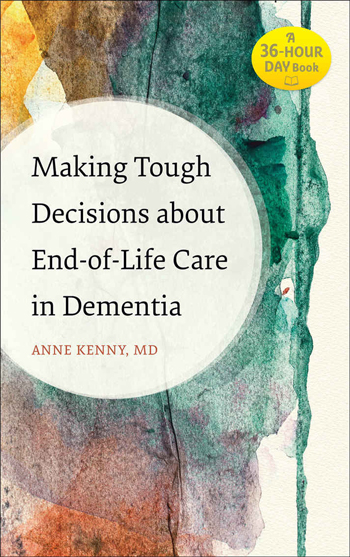
Does psychiatric training equip us with the skills to support a patient throughout their dementia journey? We can competently assess a patient presenting with cognitive impairment: we utilise our expertise to make a diagnosis and employ various strategies to promote living well with dementia.
However, are we skilled at supporting patients and families during the final weeks and months? Do we routinely encourage discussions exploring patient wishes for when decision-making ability is lost? Finally, when these conversations have not occurred, how do we support those who are called upon to make these difficult decisions?
This book is a call to arms, advocating a palliative approach for those with end-stage dementia. Written by Dr Anne Kenny, a palliative care physician based in the USA, the target audience is families and carers, particularly those faced with making decisions after capacity has been lost. Aside from sections addressing the US legal framework and financial implications, the book is still relevant to a UK audience.
This is an easy book to read. Frequent case studies break up the text, and summary sections with recommended action plans concisely conclude each chapter. Although they simplify the difficulties faced, the case studies are representative of typical challenges encountered. They are short but extremely emotive and powerful. As a result, they emphasise the key message: that a palliative approach to end-stage dementia is often not employed but is likely to be favoured by many patients. The book seeks to empower its reader to become the patient's advocate and suggests how a palliative approach might be sought and utilised.
This book has many strengths. It recognises the complex emotions faced by carers, normalising and validating them. It suggests an alternative approach when the standard route has become prolonging life at all costs. However, it also recognises that palliative care is not available or accessible for many. As a psychiatrist, this is the strongest message; we have a long way to go to ensure that all patients with dementia have access to appropriate palliation at the end of their lives.





eLetters
No eLetters have been published for this article.